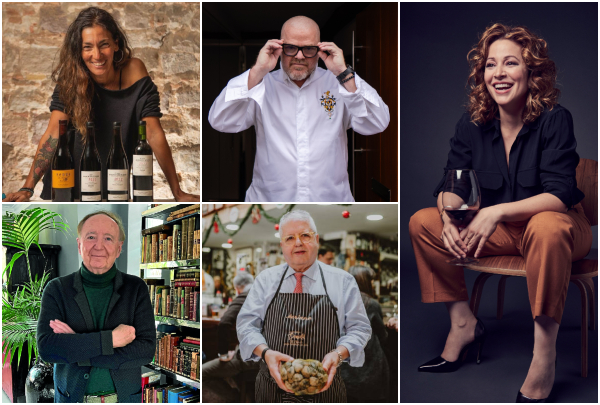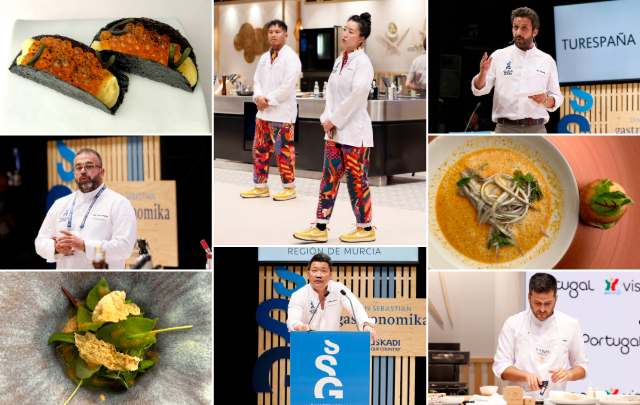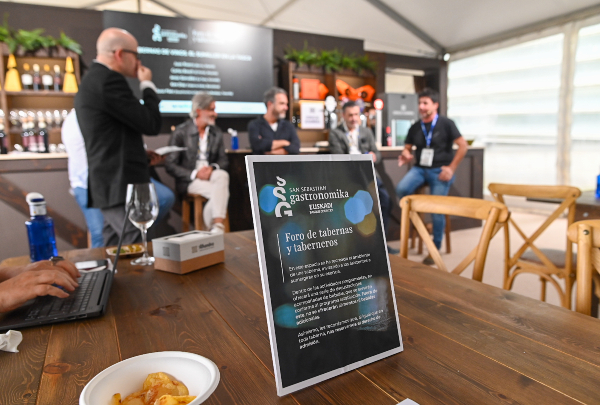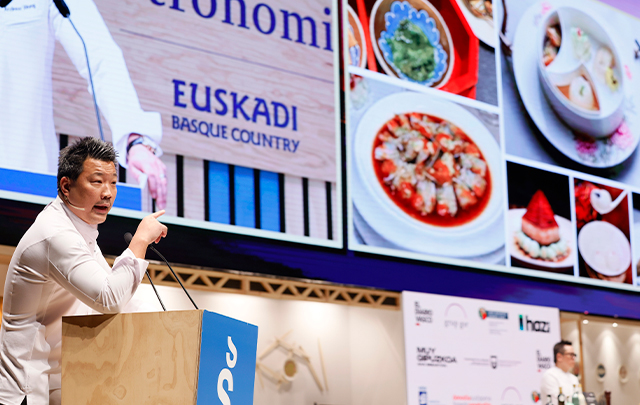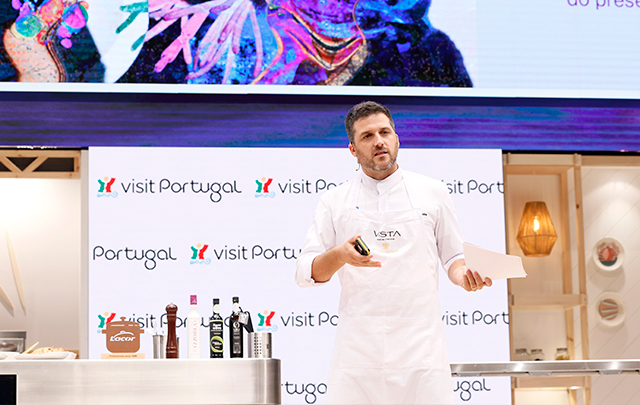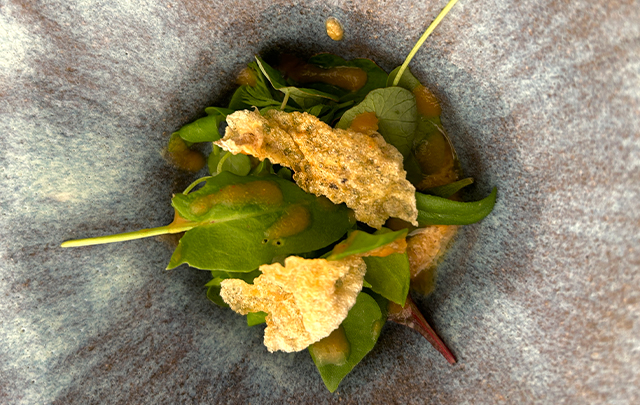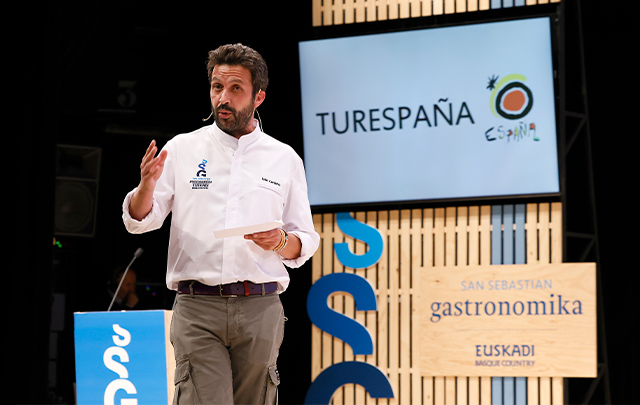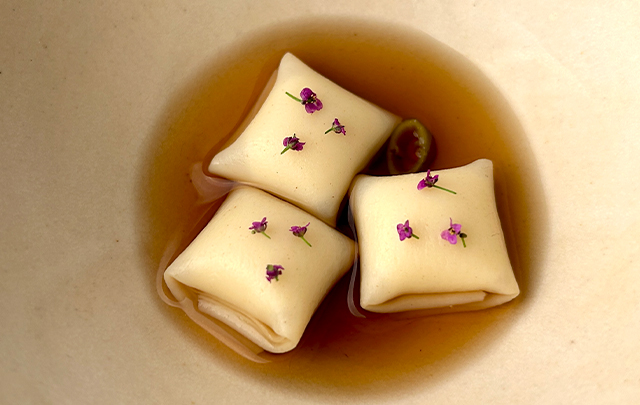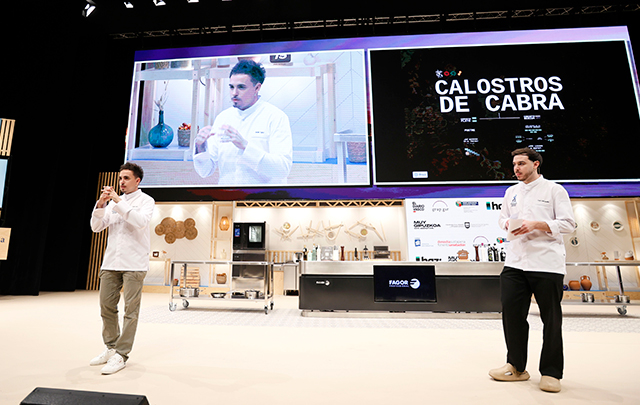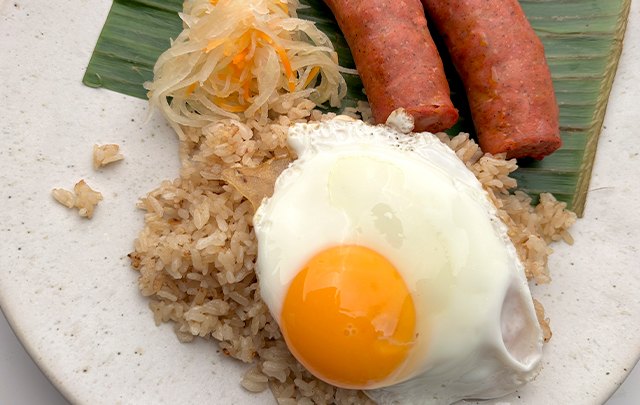News
The 1st Taverns and Tavernkeepers Forum will address the future challenges of a type of restaurant where human relations are key
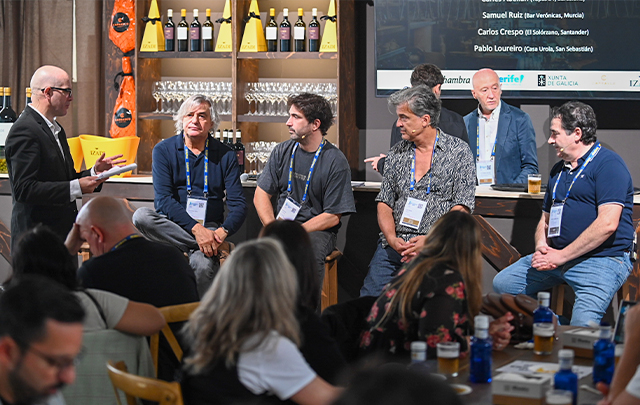
The 1st Taverns Forum once again brought together on the terrace of the Kursaal, which has been transformed into a temporary tavern until tomorrow, Tuesday, a large number of hotel and catering professionals and gastronomic journalists, who filled the room from the beginning to the end of the day. On the second day, the debates chaired by gastronome, sommelier and tavern owner Alberto Fernández Bombín focused on defining the keys to this type of restaurant and, above all, its specific challenges for the future in a context of change.
In the purest style of traditional bars, each talk was accompanied by a traditional tavern starter, from bacon and olives to sandwiches and stews. To whet the appetite, four legendary tavern owners talked about the keys to success in a tavern. The most frequently mentioned facet was its role as a meeting place and a place of welcome. In the empty Spain we talk so much about today, the last thing that happens is that the bar closes. As long as there is a bar, there is social life, and that is why bars will not disappear in the 21st, 22nd or 23rd century,' said Jorge Trifón, owner of El Fogón de Trifón, who also insisted on the importance of stew. At home we cook every day and our stews have made us famous,' he added.
Pepe Ron, the soul of the Bar Blanco in Asturias (Cangas del Narcea), emphasised "the love of the trade, because in the bar, unlike in other businesses, the relationship with the customer is vital, and you have to be at the foot of the bar every day, because if you are not there, the customer will notice". Mario Jiménez, the third generation to run the legendary El Faro de Cádiz restaurant and bar, stressed the importance of "being clear and communicating the concept to the team and maintaining it. At El Faro, we do not live by trends, but if we fail with the tortillitas de camarones, we have to close. You have to know what your essence is and the essence of the place you are in, my red lines are not to move,' he says. The most important thing is that the customer who comes has a good time, feels welcome and wants to come back. Trust is the key in this business and it starts with a good welcome,' said Xabier Zabaleta, from Aratz (San Sebastian).
Closeness, authenticity. Empathy. Trust. A refined concept, training the team and ensuring that the team is clear about the concept and identity were also aspects highlighted in the speech by Andoni Luis Aduriz (Mugaritz), Sacha Hormaechea (Sacha), Luis Suárez de Lezo, president of the Royal Academy of Gastronomy, and Benjamín Lana, director of San Sebastian Gastronomika, who expressed the need to 'give taverns the respect and recognition that we gave haute cuisine 30 years ago'.
Andoni Luis Aduriz said that 'the tavern is a reflection of the environment in which it is located. The essence of the tavern spirit is that they are meeting places and inclusive spaces. In taverns, people relax and get to know each other as equals. They are a refuge that allows people to slow down in the fast pace of our lives. They are also places to observe life, true symbols of cities. Part of their success is that they bring together two inescapable principles: identity and leadership. They are places because they build community.
The Forum did not want to stay on one side of the bar. A presentation by restaurateur and writer Andrés Sánchez Magro explored 'The DNA of the Parroquiano'. Having a bar nearby is the best thing that can happen in your life,' said the author of Lo castizo en el siglo XXI and Tabernas de Madrid, adding: 'The parroquiano is the character who is part of a family in the bar. Sánchez Magro also said that the growing importance of gastronomy was putting the concept of the traditional bar in crisis: "The baruto of his life didn't give a damn about gastronomy, and today he wants to eat oxtail gyozas in Baeza. The bar as we knew it is beginning to disappear.
Wine is an essential element of the tavern, so much so that its sale and tasting are at the origin of the tavern. The Forum discussed contemporary wine taverns with the presentation 'The sommelier in the tavern', which brought together Suso Pérez from Guachinche La Suertita (Tenerife), Juan Rivero from Berria (Madrid), Carlos Bosch (El Portal, Alicante); Jesús González from La Tana (Granada) and Kim Diaz from Taberna Soleá in Barcelona. Diaz broke the ice by pointing out that the tavern allows wine to be democratised, despite the fact that wine bars today have to spend a lot on wine (La Tana, for example, has 1,700 references), glassware and professionals with specific training.
In wine bars, wine is an investment. If you know how to manage it, it becomes very interesting, but if you don't, it ruins you', said Carlos Bosch, who added that the average sommelier knows about wine but lacks the training to know how to manage it. The sommelier must not only know about wines, but also know how to get down to the level of the customer, because his mission is to sell," said Juan Rivero.
The day ended with a session on 'The recovery of traditional bars', which brought together Manuel Urbano, who, after the success of La Malaje in Madrid, has opened El Campillo in the El Rastro district, a traditional bar offering beers for two euros with an aperitif and coffee in a glass; Ming Heng Chen, who took over the traditional Bar Delfín from its previous owner, Afrodisio Dios, alias 'Paco', on the condition that he teach him cooking and even Castilian jokes, and today boasts his Callos a la Madrileña and other traditional tapas. Eduardo Camiña (Taberna Lagüiña Lieux-dit, Pontevedra), an award-winning sommelier who left Mugaritz to take over his mother's bar in Pontevedra, has also stepped in, betting on a wine bar with a simple menu of food and tapas. A sign that bars are a reflection of their society and their times, and that, as Urbano said, "something has to change so that nothing changes".

